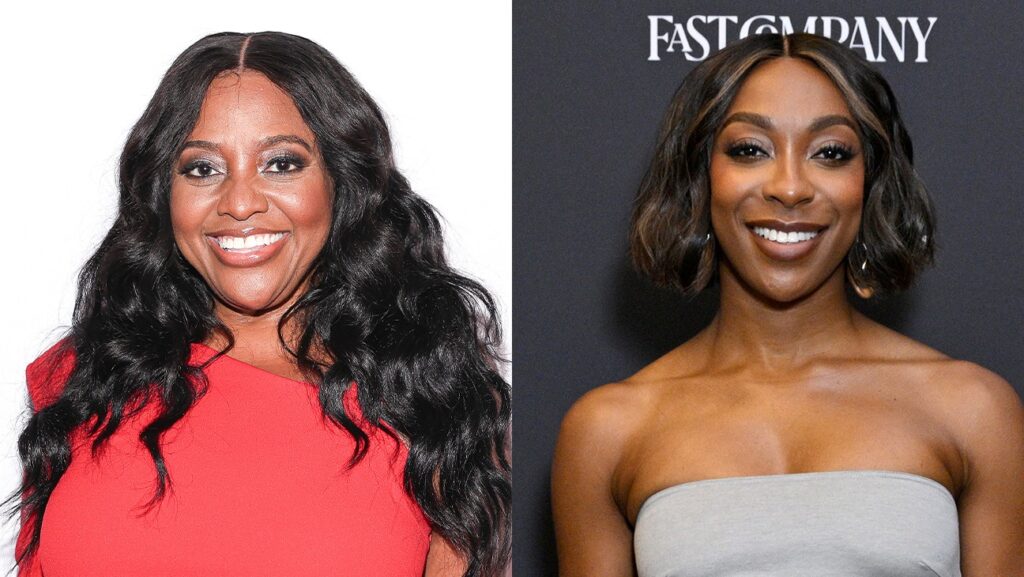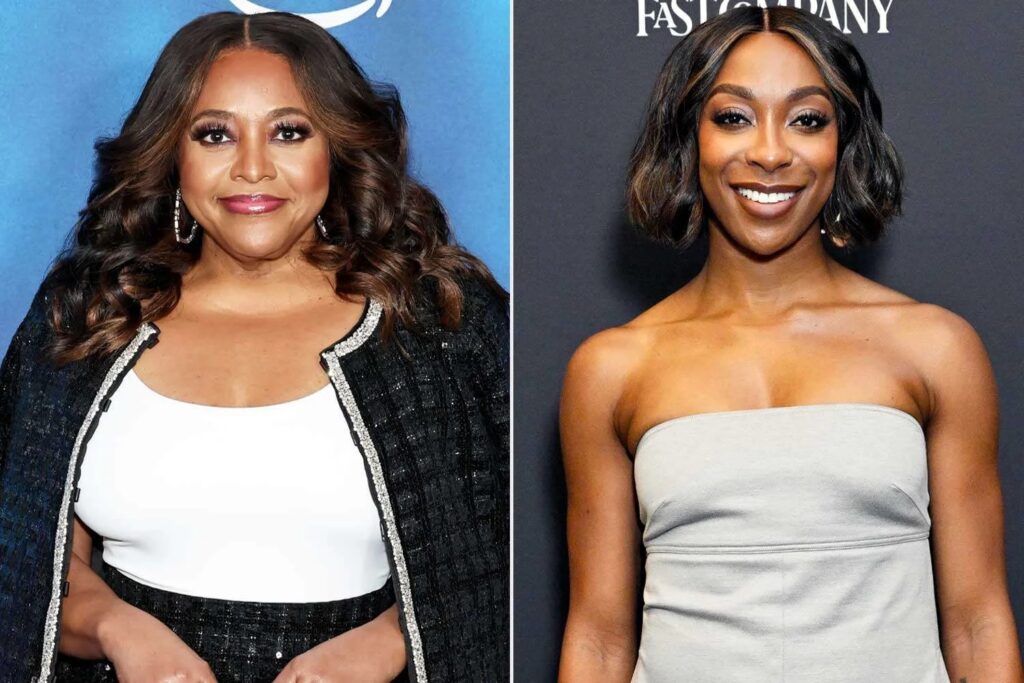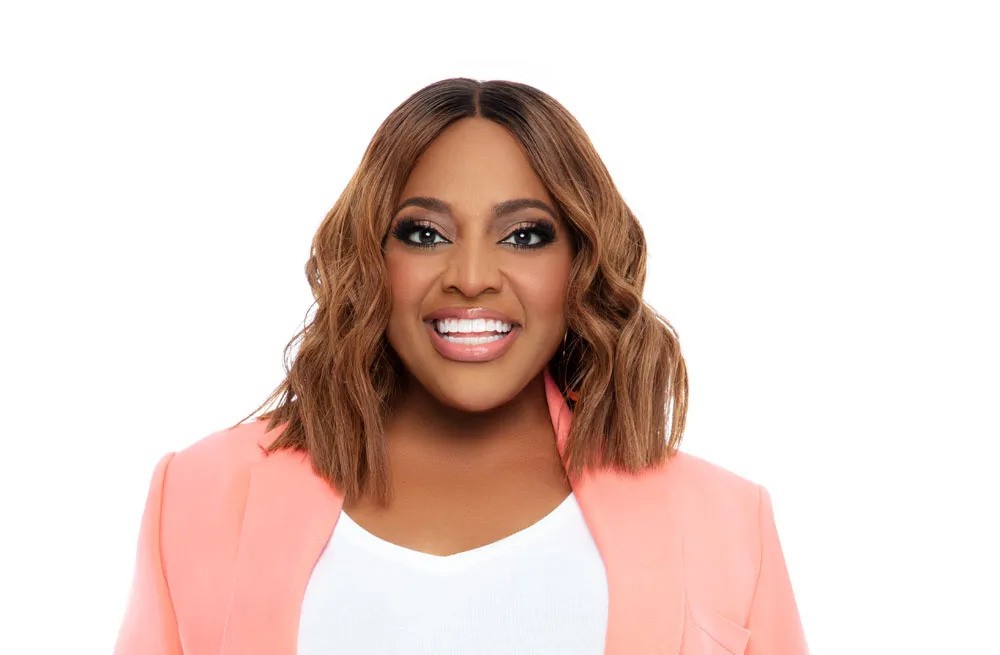Ego Nwodim’s departure from Saturday Night Live after seven seasons marks a turning point for the long‑running sketch show—and Sherri Shepherd isn’t letting it go unchallenged. Shepherd used her daytime talk platform to make a fervent call: SNL must replace Nwodim quickly, and must ensure that a Black woman returns to the cast without delay.
When SNL unveiled Season 51 on October 4, the absence of Nwodim was conspicuous. For years she had been the show’s lone Black female cast member, and with her exit, the program is once again devoid of that vital presence. Shepherd pointed this out bluntly during the Oct. 6 episode of Sherri. “She was their only Black female cast member,” Shepherd reminded her audience. “So now there’s no Black women on SNL.” She framed the moment as more than symbolic: “You guys gotta hurry up and find somebody,” she urged. “This is a break‑glass in case of an emergency. It is an emergency. It’s so important. We gotta have representation on that show.”
Shepherd’s demand was born of frustration, memory, and a deep awareness of just how damaging invisibility can be. She recounted one particularly galling moment from her tenure co-hosting The View, when SNL used Kenan Thompson to portray Whoopi Goldberg in a sketch. Because there were no Black women on staff, there was no one for the show to cast in the female roles—or even for the situation of impersonating Shepherd herself. “Then they had the nerve—when Tracy Morgan guest hosted—to have Tracy Morgan play me,” she said. “That was supposed to be me.” She added, with a measure of exasperated bemusement, that the show dressed Morgan in a “Shake‑n‑go wig,” conjuring an image of a caricatured Black woman so poorly rendered it felt insulting. The absurdity of it all underscores the stakes Shepherd is naming: these are not minor casting decisions, but matters of dignity, visibility, and public narrative.
She does not pretend that SNL is a failing institution—far from it—but she warns that it must not drift into complacency on issues of representation. She noted that many gifted Black female comics are already waiting, ready for a “life‑changing opportunity” that a spot on SNL can provide. To prove her point, she gave shoutouts to a few women whose talents she’d witnessed firsthand—Tacarra Williams, B‑Phlat, Yamaneika Saunders—and also lifted up her own comedy producer, Robin Montague, calling her a “legend” who brings laughter into every room. “Those are just three women who came on my show and were hysterical,” she said. “So many more,” she added, reminding us that the pool of talent is deep and abundant; the obstacle is access.
To understand why her urgency resonates so loudly, it helps to recall how SNL has navigated diversity over the years. The show has long been a cultural barometer: who is cast sends a message about whose voices belong in the national comedic conversation. Black women, in particular, have historically been underrepresented. When SNL did finally hire Black female cast members—Sasheer Zamata, Leslie Jones, Maya Rudolph in earlier eras, and then Ego Nwodim—it was seen by many as overdue, vital corrections to a pattern of exclusion. Nwodim’s tenure itself carried weight: her weekly presence, her characters, her identity all contributed to shifting what SNL, as a national institution, looked like on stage. Now that she is gone, that shift risks being undone.
The timing of her exit only amplifies the urgency. Nwodim announced her departure in mid-September, ahead of SNL’s milestone 50th season turning into Season 51. In her Instagram message she expressed gratitude: “I am immensely grateful to Lorne [Michaels] for the opportunity; to my castmates, the writers, and the crew for their brilliance, support, and friendship,” she wrote. She said that week after week onstage had taught her more than she ever could have imagined, and added a lighthearted note about invitations: “Now invite me to your weddings please!!” Her departure was felt not only by fans and cast, but by the show itself: the vacuum left behind is not just a seat, but a symbolic wound.
This is not the first time SNL has weathered criticism over diversity. But it is a stark moment when a show as visible and influential as SNL—a show that still holds a special place in the comics’ world and the public imagination—returns to a season with no Black women. The new cast roster for Season 51 includes Tommy Brennan, Jeremy Culhane, Ben Marshall, Kam Patterson, and Veronika Slowikowska. None of them are Black women. Kam Patterson is Black, but male—so while there is an increase in Black representation generally, the specific category of Black woman remains unsettled. The gap that Shepherd is pointing to cannot be papered over with token inclusions; it is a call for structural commitment.

Shepherd’s words are powerful because they come from someone who has been inside the system. She knows what it’s like to be overlooked, miscast, sidelined—or worse, impersonated by someone else entirely because of a systemic vacancy. She spoke about being absent from a sketch portrayal of The View table, about being erased, and about having Tracy Morgan stand in for her when no Black woman was available. These are not trivial anecdotes—they are examples of how erasure is practiced in entertainment. What might have seemed like a quirk of casting becomes, in aggregated form, a message about who gets to be seen, whose voices count.
Shepherd’s use of urgency—emergency, break glass, hurry up—is not mere rhetoric. She is naming the stakes: for young Black women who grow up watching SNL, for comedians who need a platform to expand their careers, for cultural equity in representations of humor. The absence of Black women means whole categories of experience are ignored or distorted. Comedy is a mirror to culture; when the mirror excludes some faces, it diminishes itself.
It’s worth reflecting on why this moment feels more than a casting challenge. Consider who SNL is in the broader comedy ecosystem. It is one of the most visible platforms for sketch comedy in the U.S., and its alumni often go on to films, TV shows, hosting gigs. Being on SNL can be a career accelerator. So if the show is closed to Black women, or treats the category with less urgency, it sends ripples across opportunities, narratives, and who gets access to the “next level.” The absence is not a passive omission—it’s an active decision about who does and does not get elevated.
Another dimension: visibility itself helps shape public perceptions. When audiences see people like them in sketch roles, they are reminded that comedy is a space where they belong, too. When that representation falters, it communicates the opposite—namely, that these spaces do not always welcome everyone. Shepherd’s appeal is not just about fairness to comedians; it’s about cultural legitimacy and psychological nourishment for entire communities.
In making her proclamation, Shepherd does more than point out a problem—she holds up a possibility. She is reminding SNL’s leadership that the talent pool is not empty. She names specific comedians she admires, urging that showrunners look carefully at the names they may already—or inadvertently—be overlooking. In doing so, she wants to shift the narrative not to “there are no Black women to hire,” but to “they are here; look harder, prioritize better.”
Some might argue that casting decisions are complex: deals, auditions, diversity quotas, scheduling, chemistry, and many moving parts. And indeed, television production is rarely simple. But the sharpness of Shepherd’s critique is that when representation becomes a project rather than an afterthought, many of those challenges can be met more proactively. If SNL made it a priority months or even years ago, the gap would not feel so abrupt now.
Her words also press SNL publicly—making this not just an internal matter but a matter the audience is watching. By speaking on national television, Shepherd brings awareness and pressure. Audiences are reminded to look more critically at who is placed on stage, who is left off, and whose absence is felt. That social accountability can push institutions—including SNL—to act more conscientiously.
And whether SNL responds quickly or slowly, Shepherd’s voice will keep the matter in conversation. It will ripple through entertainment press, social media, stand‑up circuits, and among comedians themselves. If SNL waits too long, the critique will only deepen; if they respond, the question becomes: will it be meaningful, thoughtful, lasting—and will the pick be someone who can claim their space genuinely rather than as a token?
Beyond the specifics of SNL, this moment reflects a broader cultural tension. How do institutions that have long been influential reckon with representation once their biggest stars depart? How do they avoid lapsing back into default norms—white, male, cisgendered—when the gatekeepers tighten or get comfortable? The absence of Black women on SNL now could become another data point used to justify future passivity—unless challenged.

In giving her testimony and demand, Shepherd is doing more than asking for a name on a list. She is reclaiming narrative agency: she’s interfering in a casting process to demand that history not repeat itself—that SNL not be content with invisibility by default. She is reminding the show, the industry, and the culture that representation is not a side issue—it is a central part of how the media mirrors or distorts reality.
It’s now up to SNL. They can respond with speed and seriousness, seeking out Black women whose voices and comedic perspectives will enrich the cast, or they can delay, hoping the optics fade. The characters they bring will matter. Will they hire someone who can join not as a token but as a full voice? Will they commit to retention, not just hiring? Will the show’s leadership embed diversity in casting pipelines rather than reacting only when gaps become stark?
Shepherd made clear: this is a moment of reckoning. The gap left by Nwodim’s departure is not just a seat to fill—it is a reminder that inclusion must be active, not passive. SNL now has a choice. It can respond to Sherri Shepherd’s call and elevate a Black woman who brings imaginative perspective, urgency, and comedic power. Or it can wait—risking that the absence becomes normalized, that history repeats, and that a major voice in American sketch comedy remains closed to too many.










